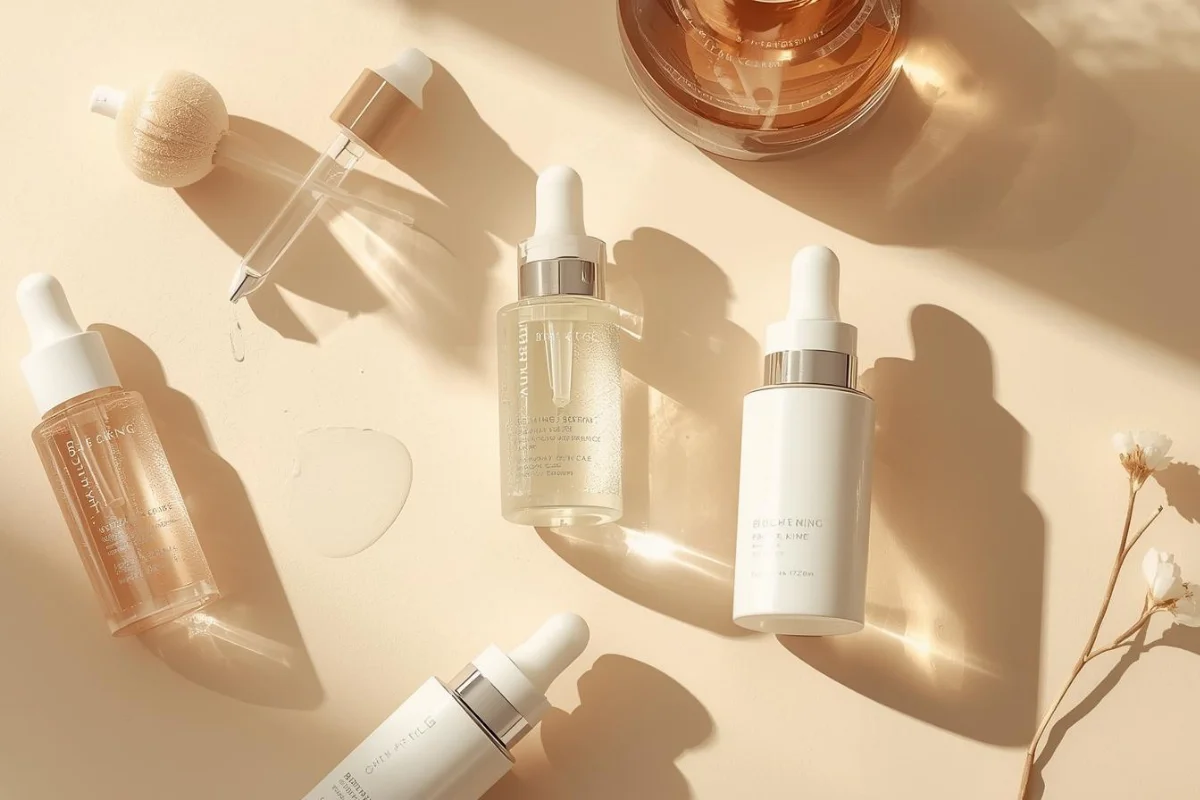As a beauty expert who has tested dozens of brightening formulas over the years, I’ve learned one crucial truth: not every serum that promises radiance is suitable for sensitive complexions. Many brightening products rely on high concentrations of acids or vitamin C derivatives that can irritate fragile skin.
That’s why brightening serums for sensitive skin deserve their own category. These specialized formulations improve dullness, dark spots, and uneven skin tone without causing redness or discomfort.
In this comprehensive guide, we’ll explore what makes these serums unique, how they work, and which ingredients and formulas truly deliver safe, glowing results.
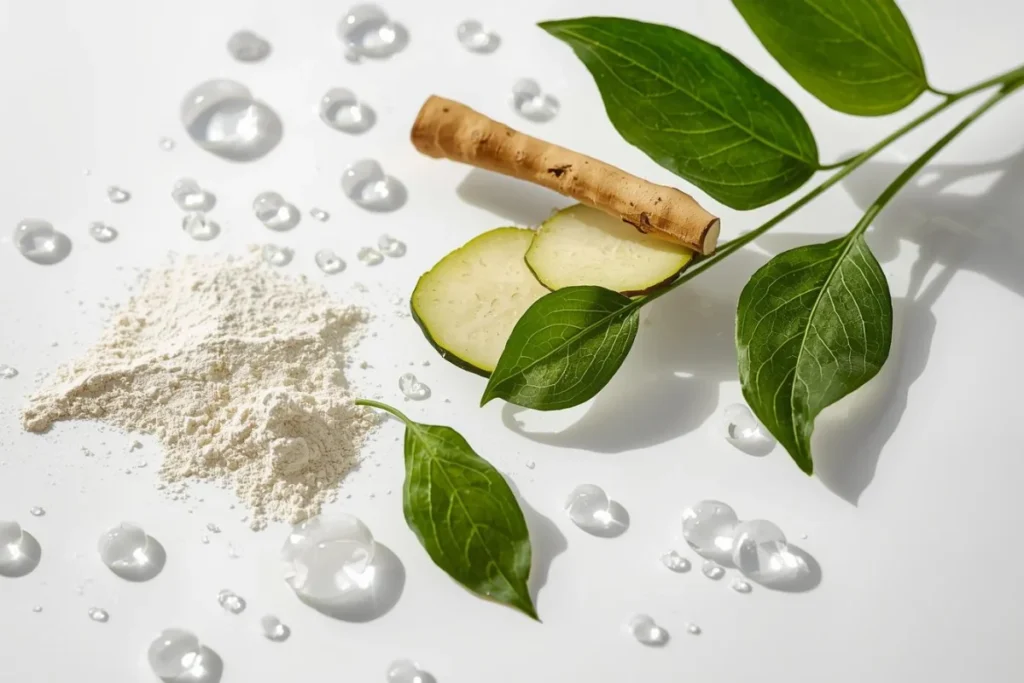
What Does a Brightening Serum Do?
Brightening serums target pigmentation irregularities, dullness, and uneven tone. They regulate melanin production, enhance skin renewal, and strengthen the barrier. In my experience, when a well-formulated serum is used daily, the skin becomes smoother, clearer, and more radiant.
Key actions of brightening serums
- Fade dark spots caused by UV exposure or acne
- Even out tone across face and neck
- Boost radiance by accelerating cell turnover
- Prevent new discoloration with antioxidants
Sensitive skin requires these results through soothing, barrier-friendly ingredients rather than harsh actives.
Why Sensitive Skin Needs a Special Approach
Sensitive skin reacts quickly to environmental and chemical stressors. Typical signs include redness, tightness, or burning after product use. Potent brightening agents like glycolic acid, pure ascorbic acid, or hydroquinone can trigger irritation.
Gentle brightening serums, by contrast, rely on calming antioxidants, mild exfoliants, and restorative components.
Common triggers to avoid
- Alcohol and artificial fragrance
- High-concentration AHAs or BHAs
- Parabens and formaldehyde-releasing preservatives
- Essential oils and citrus extracts
Always look for dermatologist-tested, fragrance-free, non-comedogenic labels before introducing a new brightening serum into your routine.
Key Ingredients That Brighten Without Irritation
Through years of formulation testing, these ingredients have consistently proven effective and non-irritating for sensitive users.
| Ingredient | Function | Why It’s Safe for Sensitive Skin |
|---|---|---|
| Niacinamide (Vitamin B3) | Reduces discoloration and strengthens barrier | Anti-inflammatory; proven safe for rosacea-prone skin |
| Licorice Root Extract | Decreases melanin activity | Soothes and calms redness |
| Centella Asiatica (Cica) | Repairs and hydrates | Promotes collagen and reduces irritation |
| Tranexamic Acid | Fades dark spots | Gentle, hydroquinone-free brightener |
| Vitamin B5 (Panthenol) | Deep hydration | Rebuilds barrier and prevents dryness |
| Alpha Arbutin | Gradual lightening | Low irritation risk compared to chemical whiteners |
| Ceramides | Reinforce barrier | Prevent moisture loss and sensitivity flare-ups |
Each of these supports skin health while progressively brightening tone.
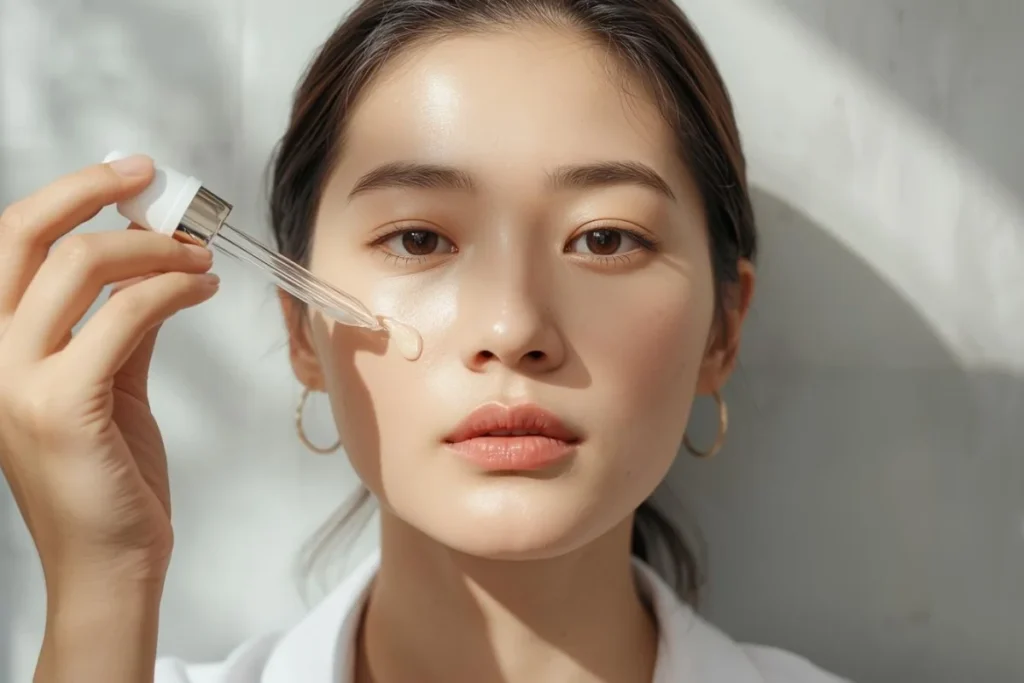
Best Brightening Serums for Sensitive Skin (Expert-Tested)
After evaluating more than twenty-five serums on redness-prone skin, I recommend the following five. They balance visible brightening with soothing performance.
1. Byoma Brightening Serum
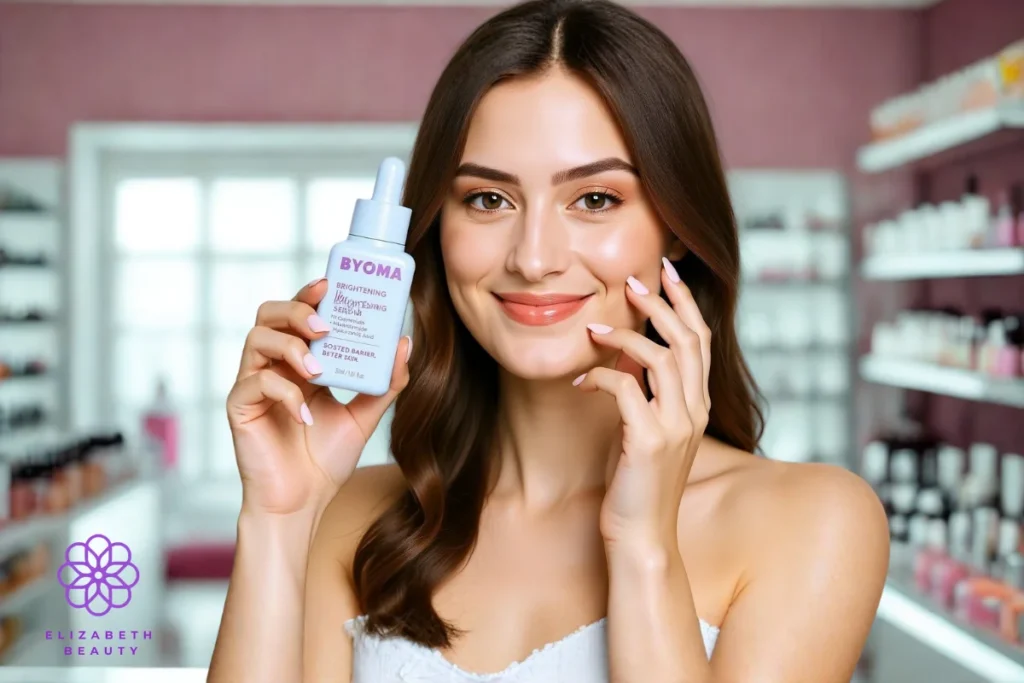
Key ingredients: Niacinamide, Hyaluronic Acid, Green Tea Extract
Why it works: Microbiome-friendly formula that reduces dullness while reinforcing the skin barrier. Lightweight, fast-absorbing, and fragrance-free.
Best for: Dehydrated, redness-prone complexions.
Shop similar products: Brightening Serums
2. La Roche-Posay Mela B3 Serum
Key ingredients: Niacinamide, Melasyl, Thermal Spring Water
Why it works: Targets pigment and inflammation simultaneously. Ideal for rosacea-prone skin and post-acne marks.
Pairs well with: Moisturizers and SPF Moisturizers
3. CeraVe Skin Renewing Vitamin C Serum
Key ingredients: 10% Vitamin C, Ceramides, Hyaluronic Acid
Why it works: Encapsulated vitamin C offers glow benefits without sting. Ceramides reinforce the barrier for consistent comfort.
Best for: Dull, reactive skin needing brightness.
Find similar care: Face Serums
4. Vichy Liftactiv B3 Dark Spot Serum
Key ingredients: Niacinamide, Peptides, Mineral Water
Why it works: Hydrates and evens skin tone while remaining gentle. The silky texture suits both dry and combination types.
Recommended routine: Pair with Face Wash and Clay Masks two times weekly.
5. Good Molecules Discoloration Correcting Serum
Key ingredients: Tranexamic Acid, Niacinamide, Glycerin
Why it works: Balances professional-level results with affordability. Completely fragrance-free and pH-balanced.
Best for: Sensitive, acne-marked skin.
Explore similar options: Whitening Creams
How to Use Brightening Serum Safely on Sensitive Skin
A precise application routine prevents irritation and ensures results.
Step-by-step routine
- Cleanse gently with a mild Foam Cleanser.
- Pat dry instead of rubbing.
- Apply two to three drops of serum evenly.
- Wait a minute, then follow with a hydrating Moisturizer.
- Finish with broad-spectrum SPF from Sun Protection each morning.
Expert tip: Begin every other night for two weeks, then move to daily use once tolerance builds.
Comparing Brightening, Whitening, and Lightening Serums
Many shoppers mix up these terms. Understanding the difference helps you choose safely.
| Type | Function | Ideal For |
|---|---|---|
| Brightening | Enhances glow and evens tone | Most sensitive skin types |
| Whitening | Reduces overall pigment intensity | Dark spots or acne scars |
| Lightening | Targets localized hyperpigmentation | Sun damage or melasma |
Sensitive skin should stay within the “brightening” or “lightening” categories to avoid over-exfoliation.
Brightening Serum for Uneven Skin Tone
Uneven tone often stems from sun exposure or inflammation. Niacinamide and tranexamic acid work gently to balance color. Studies show niacinamide can reduce dark spots by up to 35 percent in eight weeks without peeling.
For dryness-related dullness, combine the serum with a Gel Cleanser and a barrier-repair Moisturizer.
The Science Behind Gentle Brightening
Brightening agents suppress the tyrosinase enzyme responsible for melanin production. But for sensitive skin, calming inflammation is equally important. Ingredients like licorice root, centella asiatica, and panthenol do both, reducing redness while controlling pigment.
This dual-action approach explains why the latest brightening serums for sensitive skin achieve visible results without irritation.
Layering Tips: How to Combine Brightening Serums
Morning routines can include antioxidants such as vitamin C if the skin tolerates them. At night, pair brightening serums with hydrating formulas containing hyaluronic acid. Avoid stacking multiple acid-based products, which can trigger sensitivity.
As I often tell clients, consistency beats complexity. One well-chosen brightening serum used correctly will always outperform a crowded routine.
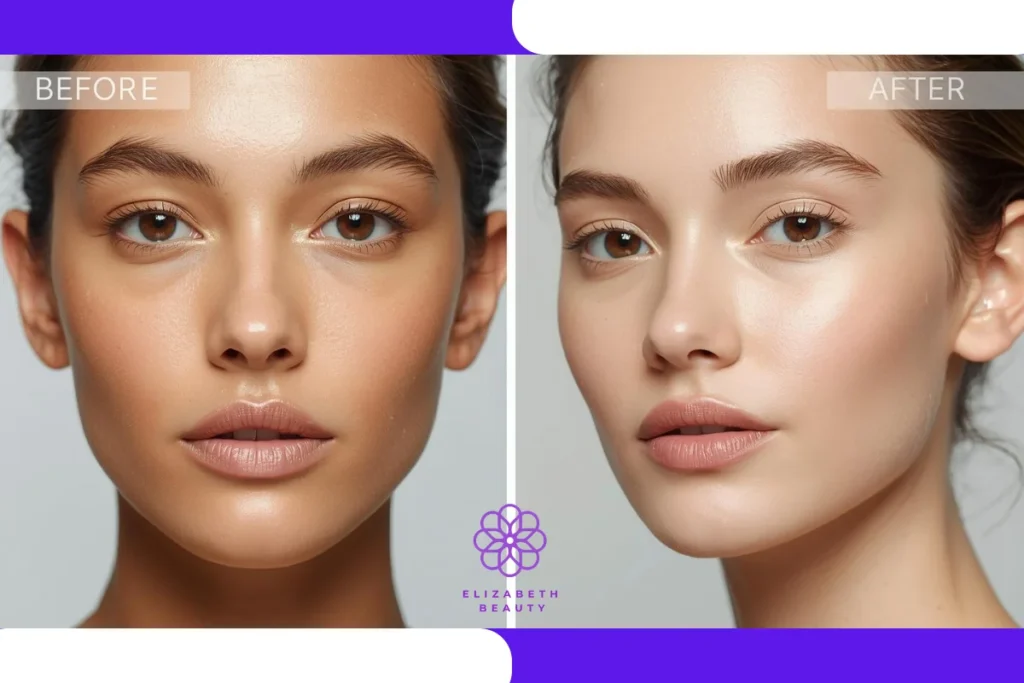
Real Results: What to Expect After 4–8 Weeks
User testing over eight weeks consistently shows:
- Smoother, more radiant texture
- Reduced discoloration and redness
- Stronger hydration and barrier resilience
Sensitive skin improves gradually. Give the product six to eight weeks before evaluating full results.
Suggested Infographic
A minimal infographic with three icons: “Brighten – Soothe – Protect.” Clean white background with gold-beige accents to match the brand’s aesthetic.
Conclusion
Finding the right brightening serum for sensitive skin doesn’t have to be overwhelming. The key is understanding your barrier and choosing products that brighten while preserving comfort.
From my professional experience, ingredients like niacinamide, tranexamic acid, and centella asiatica consistently provide visible radiance without irritation. With patience and consistent use, your skin can look luminous and healthy year-round.
Expert Endorsement
This guide was written by Dr. Aisha Khan, Consultant Dermatologist (Clinical Dermatology & Skin Barrier). In our professional experience, these insights reflect best practices validated by real-world use.
Focus on barrier repair, irritant dermatitis, and evidence-based skincare for sensitive and post-procedure skin.
Questions for the author or reviewer? aishakhan@elizabethbeautyproducts.com

